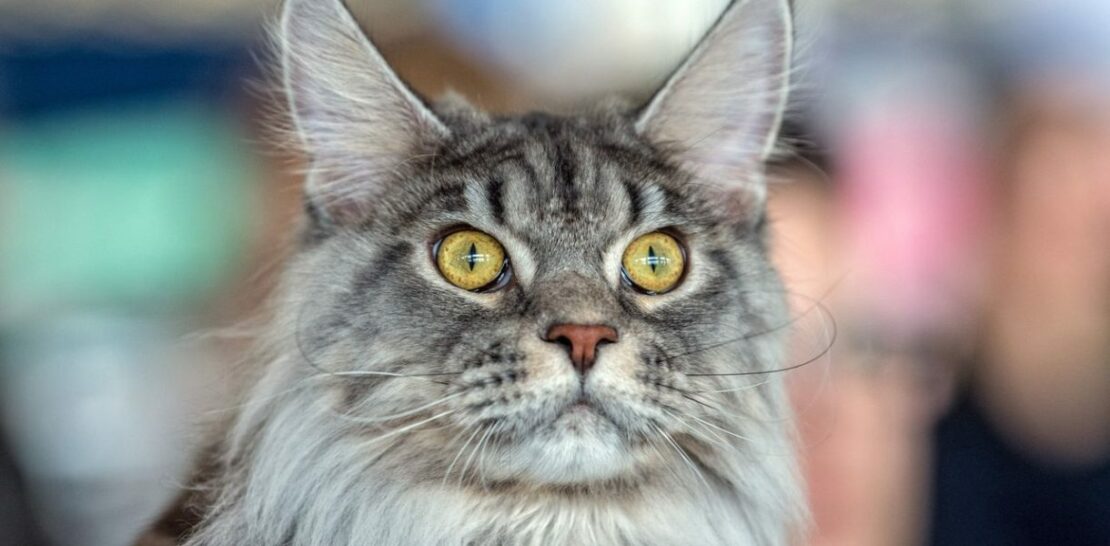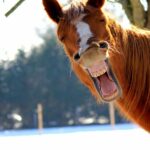If you’ve ever encountered a Maine Coon, you know that there is something truly special about this extraordinary breed of cat.
Known for their large size, silky fur, and affectionate personalities, Maine Coons have captured the hearts of cat lovers around the world.
But what makes them so unique, and why are they such a popular choice among pet owners?
In this comprehensive guide, we will explore the fascinating world of the Maine Coon, delving into their history, character traits, health concerns, pricing, and more.
So, whether you’re a seasoned Maine Coon enthusiast or simply curious about these gentle giants, get ready to learn everything there is to know about this remarkable breed.
A Brief History of the Maine Coon: America’s Native Longhair
Before we dive into the specifics of the Maine Coon breed, it’s important to understand their rich and storied history. As one of the oldest natural breeds in North America, the Maine Coon has a heritage that is both intriguing and somewhat mysterious.
- Origins: The Maine Coon’s origins can be traced back to the early 19th century in the northeastern United States, specifically the state of Maine, which is where the breed gets its name. Although the exact origins of the breed remain a mystery, many believe that they are the descendants of domestic short-haired cats that bred with long-haired cats from overseas, brought to America by sailors and settlers.
- Popularity and Recognition: Maine Coons quickly gained popularity as a versatile and hardy breed, well-suited for the harsh New England winters. They were initially known as “coon cats” due to their resemblance to raccoons, with their bushy tails and tufted ears. The breed was officially recognized by the Cat Fanciers Association (CFA) in 1976 and has since become one of the most popular cat breeds in the United States and around the world.
- Record Breakers: Maine Coons hold several records for their size and weight, including the title for the world’s longest domestic cat, which was awarded to a Maine Coon named Stewie, measuring an impressive 48.5 inches from nose to tail.
The Character of the Maine Coon: Gentle Giants with Playful Personalities
One of the main reasons that Maine Coons have become such a popular breed is their unique and endearing personalities. Often referred to as “gentle giants,” these large cats are known for their friendly and sociable nature, making them wonderful companions for families, singles, and seniors alike.
- Affectionate and Sociable: Maine Coons are known for their loving nature and strong bonds with their human families. They often enjoy being close to their owners, following them around the house and participating in daily activities. While they are not overly demanding of attention, they appreciate companionship and will often seek out affection from their humans.
- Intelligence and Trainability: As one of the most intelligent cat breeds, Maine Coons are highly trainable and enjoy engaging in interactive play and puzzle-solving activities. This makes them an excellent breed for owners who enjoy teaching their cats tricks or who want a more interactive pet experience.
- Playfulness and Energy: Despite their large size, Maine Coons are known for their playful and energetic personalities. They enjoy engaging in games of fetch, chasing toys, and climbing cat trees. This energy level, combined with their intelligence, means that Maine Coons require regular mental and physical stimulation to keep them happy and healthy.
- Adaptability and Tolerance: One of the most appealing traits of the Maine Coon breed is their adaptability and tolerance to various living situations and environments. They are generally easygoing and get along well with children, other cats, and even dogs, making them an ideal choice for families with multiple pets or those living in a variety of living situations.
Maine Coon Health: Understanding and Addressing Common Health Concerns
While Maine Coons are generally a healthy and robust breed, it is essential for prospective owners to be aware of some common health concerns that may affect their feline companions. By understanding these issues and taking appropriate preventative measures, owners can help to ensure that their Maine Coon lives a long, healthy, and happy life.
Hip Dysplasia: One common genetic condition thataffects Maine Coons is hip dysplasia, which occurs when the hip joint does not develop properly, leading to arthritis and pain in the joint. Regular veterinary check-ups and maintaining a healthy weight can help to prevent and manage this condition. If your Maine Coon is diagnosed with hip dysplasia, your veterinarian may recommend a combination of medication, weight management, and joint supplements to manage the condition.
Hypertrophic Cardiomyopathy (HCM): Another health concern that may affect Maine Coons is hypertrophic cardiomyopathy, a form of heart disease that causes the heart muscle to enlarge and thicken. This condition can be hereditary, and responsible breeders will screen their breeding cats for the gene associated with HCM. Regular veterinary check-ups, including heart examinations, are essential for early detection and management of this condition. If your Maine Coon is diagnosed with HCM, your veterinarian may recommend medication and lifestyle changes to help manage the disease.
Polycystic Kidney Disease (PKD): Maine Coons may also be at risk for polycystic kidney disease, a genetic condition that causes cysts to form in the kidneys, eventually leading to kidney failure. Like HCM, responsible breeders will screen their breeding cats for the gene associated with PKD to reduce the risk of passing on the condition. Regular veterinary check-ups and bloodwork can help detect and monitor PKD in affected cats. If your Maine Coon is diagnosed with PKD, your veterinarian may recommend a special diet, medication, and supportive care to help manage the condition.
Size and Physical Characteristics: What to Expect from a Maine Coon
One of the most distinctive features of the Maine Coon breed is their impressive size and physical appearance. As the largest domestic cat breed, Maine Coons are often referred to as the “gentle giants” of the feline world, and their unique characteristics make them a truly stunning and majestic breed.
- Size and Weight: Male Maine Coons typically weigh between 13 and 18 pounds, while females usually weigh between 8 and 12 pounds. Some particularly large males may weigh over 20 pounds. In terms of length, adult Maine Coons can measure anywhere from 30 to 40 inches from nose to tail.
- Coat and Coloring: Maine Coons have a luxurious, silky coat that is medium in length, with a longer, bushy tail and a ruff of fur around their necks. Their coat is generally low-maintenance, requiring only weekly brushing to prevent matting and tangles. Maine Coons come in a wide variety of colors and patterns, including solid colors, tabby, tortoiseshell, and more.
- Distinctive Features: In addition to their large size and beautiful coat, Maine Coons have several other distinctive features that set them apart from other breeds. These include their large, expressive eyes, high cheekbones, and prominent, tufted ears. Maine Coons also have large, sturdy bodies and powerful, muscular legs, which enable them to be excellent climbers and jumpers.
Maine Coon Pricing: Understanding the Costs Involved in Owning a Maine Coon
As with any pet, prospective Maine Coon owners should be aware of the costs involved in purchasing and owning one of these magnificent cats. While the initial purchase price can be quite high, it is essential to consider the long-term costs associated with caring for a Maine Coon throughout their lifetime.
- Purchase Price: The cost of a Maine Coon kitten from a reputable breeder can range anywhere from $800 to $2,000, depending on factors such as the kitten’s pedigree, coat color, and the breeder’s reputation. It is crucial to do thorough research and choose a reputable, responsible breeder who prioritizes the health and wellbeing of their cats and kittens.
- Veterinary Care: As with any pet, routine veterinary care is essential for keeping your Maine Coon healthy and addressing any potential health concerns. This includes regular check-ups, vaccinations, and preventative care, as well as any necessary treatment for illnesses or injuries. The cost of veterinary care can vary depending on your location and your cat’s specific needs, but it is important to factor this into your budget when considering a Maine Coon.
- Food and Supplies: Maine Coons, as large and energetic cats, may require a slightly higher food intake than smaller breeds. High-quality, nutritious cat food is essential for maintaining their health andvitality, so be prepared to invest in a quality diet for your feline friend. Additionally, you will need to budget for necessities such as litter, grooming tools, and toys, as well as larger items like a sturdy cat tree or scratching post to accommodate your Maine Coon’s size and strength.
- Insurance and Emergency Care: Pet insurance can be a wise investment, particularly for breeds like the Maine Coon, which may be predisposed to certain health conditions. While not a mandatory expense, pet insurance can provide peace of mind and financial assistance in the event of accidents or illnesses. Additionally, it is crucial to have an emergency fund set aside for any unexpected veterinary expenses that may arise throughout your Maine Coon’s life.
In conclusion, the Maine Coon is a truly exceptional breed, known for its majestic size, playful personality, and loyal companionship. As a prospective owner, understanding their history, character traits, health concerns, and the costs involved in owning a Maine Coon will help ensure that you are well-equipped to provide a loving and nurturing home for your feline friend. With proper care and attention, a Maine Coon can be a treasured member of your family for many years to come. So, if you’re considering welcoming one of these gentle giants into your home, you can be confident that you’re making an excellent choice in a devoted and affectionate companion.




